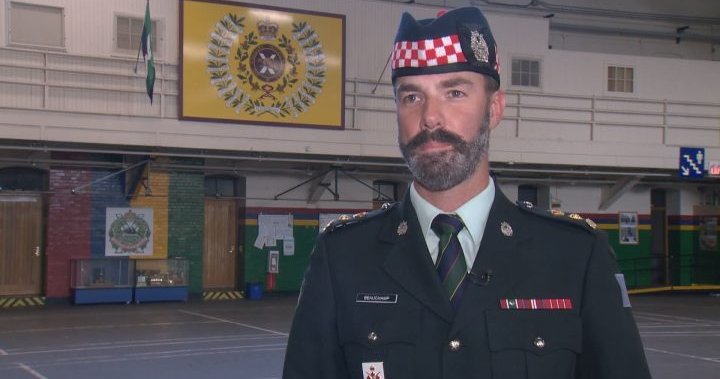With more requests to respond to natural disasters, the Canadian Armed Forces (CAF) are under pressure.
The House of Commons committee on National Defense heard testimony from Maj-Gen. Paul Prévost, a senior member of the Strategic Joint Staff, on Tuesday. Prévost warned lawmakers that the anticipated rise in the frequency and severity of extreme weather events across Canada as well as the wider changes in the Arctic may result in an increase in the need for military emergency assistance.
Prevost advised members of the all-party committee to think of the Canadian Forces as a last-resort force.
He claimed that over the past ten years, there has already been an increase in the need for the Canadian Armed Forces to respond to floods, fires, and snowstorms.
Seven requests for the military to assist in responding to regional natural catastrophes were made in 2021.
In comparison, from 2017 and 2021, there will be four requests per year. From 2010 to 2017, the military received an average of two petitions annually.
In other words, since 2010, Prévost noted, the Canadian Armed Forces’ response to natural disasters has roughly doubled every five years.
The Canadian Armed Forces are now having trouble filling positions due to the increased demand.
Prévost stated that there are 5,241 Canadian Rangers, 29,247 reservists, and 63,871 regular personnel of the Forces.
It’s all hands on deck right now to find and keep as many CAF members as we can since, according to Prevost, “we’re around 10,000 personnel shy of where we want to be overall.
About 700 members of the Canadian Armed Forces are assisting Atlantic Canada in the wake of post-tropical storm Fiona by working with federal, provincial, territorial, and municipal partners in three provinces and seven different areas.
This fall, a modification to Canada’s defence strategy is anticipated, and it will detail how the Canadian Forces respond to emergencies.
One reservist claimed that despite the difficulties of balancing part-time military service with a full-time career, the skills he has learned, the locations he has travelled, and the people he has been able to assist have made it all worthwhile.
Lt. Col. Drew Beauchamp, the commanding officer of the Calgary Highlanders, said: “I’ve been in the army reserves for 22 years and I joined as an opportunity to enhance my leadership skills in a real-world context and certainly in a tough one.
There is no better place for young people wishing to develop their leadership skills and serve their country than the army reserves, according to Beauchamp, who also participated in Queen Elizabeth II’s funeral procession in London in September.
Attending the funeral, according to Beauchamp, helped him realise why he joined the CAF, and he hopes that it would encourage others to enlist when they are required.
It serves as a reminder for us to strive for service beyond ourselves and look for ways to improve our community, our nation, and our globe, he said.
Due to our unique connection with Her Majesty, being present was crucial, said Beauchamp. It was a profound honour to be a part of that moment in history. Personnel of the National Health Service, the ambulance service, and other civilian groups were also involved, in addition to members of the armed forces.
People who have committed their lives to service were present to honour her in the same way that she has.
Natural disasters have increased demand for the CAF, which is experiencing a staffing shortfall.

